What should politicians be reading at parliamentary book club? Our experts make their picks
- Written by Jane Howard, Deputy Section Editor: Arts + Culture
You might picture a book club around your neighbour’s coffee table, or over beers at the local pub – but what if it took place in Parliament House?
This is the question being asked by Books Create Australia as they open up nominations for their inaugural parliamentary book club. Anyone can nominate an Australian book written in the last five years to their MP or senator, and one book will be picked for all participating representatives to read.
From fiction to essays to poetry, we asked our experts for their recommendations.
Portable Curiosities
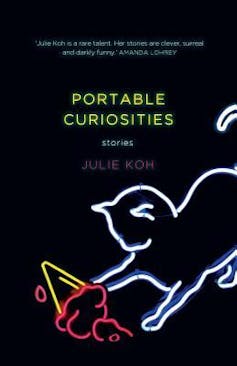 For this crowd, I’d recommend Julie Koh’s Portable Curiosities (UQP, 2016). It’s a sharp and funny collection of stories that expanded my sense of what it is to be Australian. On the assumption that parliamentarians skew demographically to my (Anglo, male, privileged, economically secure) demographic, they too deserve a bit of satirical poking with Koh’s delicate and sharp instruments.
What would it be like to be a young, poor, bright woman born of Asian immigrants in our wealthy but extremely expensive cities? Many thousands are living exactly that, and millions are living parts of it. Koh provides a dark yet joyous window on that world. It wouldn’t do our representatives any harm to look through it for a bit.
Recommended for: our Anglo, male parliamentarians.
-Robert Phiddian, English Professor
A Sand Archive
For this crowd, I’d recommend Julie Koh’s Portable Curiosities (UQP, 2016). It’s a sharp and funny collection of stories that expanded my sense of what it is to be Australian. On the assumption that parliamentarians skew demographically to my (Anglo, male, privileged, economically secure) demographic, they too deserve a bit of satirical poking with Koh’s delicate and sharp instruments.
What would it be like to be a young, poor, bright woman born of Asian immigrants in our wealthy but extremely expensive cities? Many thousands are living exactly that, and millions are living parts of it. Koh provides a dark yet joyous window on that world. It wouldn’t do our representatives any harm to look through it for a bit.
Recommended for: our Anglo, male parliamentarians.
-Robert Phiddian, English Professor
A Sand Archive
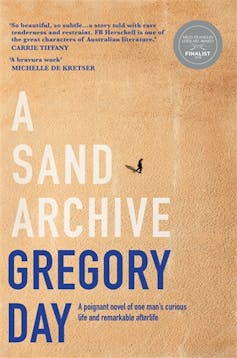 Gregory Day’s A Sand Archive (Pan Macmillan Australia, 2018) deals with perhaps the most crucial issue we face – environmental management – in lyrical mode. FB Herschell is an engineer concerned about how to maintain the Great South Road against the constant shifting of the sands on which they are built.
He selects marram grass to stabilise the dunes, but further research reveals that marram, an introduced species, harms the dunes, seabirds, and native plants. His appeals to reverse this, and all his evidence, fail to shift the local council, but the writings he leaves put on record the value of the environment, and the capacity of scientific investigation to help it heal.
Recommended for: Minister for the Environment Sussan Ley
–Jen Webb, Director of the Centre for Creative and Cultural Research
#MeToo: Stories from the Australian movement
Gregory Day’s A Sand Archive (Pan Macmillan Australia, 2018) deals with perhaps the most crucial issue we face – environmental management – in lyrical mode. FB Herschell is an engineer concerned about how to maintain the Great South Road against the constant shifting of the sands on which they are built.
He selects marram grass to stabilise the dunes, but further research reveals that marram, an introduced species, harms the dunes, seabirds, and native plants. His appeals to reverse this, and all his evidence, fail to shift the local council, but the writings he leaves put on record the value of the environment, and the capacity of scientific investigation to help it heal.
Recommended for: Minister for the Environment Sussan Ley
–Jen Webb, Director of the Centre for Creative and Cultural Research
#MeToo: Stories from the Australian movement
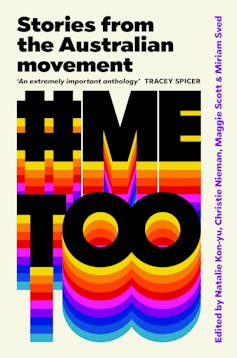 Given the fact violence towards women is a national crisis, I would recommend #Me Too: Stories from the Australian movement (Pan Macmillan Australia, 2019), an anthology I co-edited. This book gives an overview of the problem of violence towards women and non-binary people in Australia. Through a myriad of different and diverse voices it points to the insidiousness of sexual violence and traces the roots of this problem to the everyday sexism which still permeates Australian culture. The book also offers ideas about how we might find a way through this crisis and into a more equitable and safer Australia.
Recommended for: Prime Minister Scott Morrison
–Natalie Kon-yu, Lecturer in Literature and Gender Studies
The Natural Way of Things
Given the fact violence towards women is a national crisis, I would recommend #Me Too: Stories from the Australian movement (Pan Macmillan Australia, 2019), an anthology I co-edited. This book gives an overview of the problem of violence towards women and non-binary people in Australia. Through a myriad of different and diverse voices it points to the insidiousness of sexual violence and traces the roots of this problem to the everyday sexism which still permeates Australian culture. The book also offers ideas about how we might find a way through this crisis and into a more equitable and safer Australia.
Recommended for: Prime Minister Scott Morrison
–Natalie Kon-yu, Lecturer in Literature and Gender Studies
The Natural Way of Things
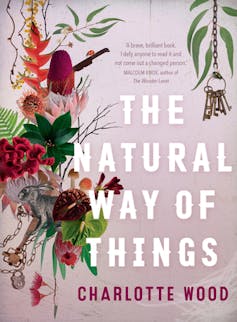 In Charlotte Wood’s The Natural Way of Things (Allan & Unwin, 2015), women who accuse men of sexual harassment or are themselves accused of illicit or improper sexuality are imprisoned and isolated in an outback prison. It’s like an Australian version of Margaret Atwood’s The Handmaid’s Tale.
Because it reads like a dystopian fantasy, it might be easy to dismiss the novel as “unrealistic”. But it is ruthless in its analysis of the way contemporary news media and gossip cycles still demonise and sexualise women. The novel explores the very different ways women resist or accommodate to their treatment; but it is really about the structures of patriarchy, influential far beyond the confines of the nuclear heterosexual family.
Recommended for: any male politician who says he is sympathetic to women because he is married to one or has daughters.
–Stephanie Trigg, English Literature Professor
Writing to the Wire
In Charlotte Wood’s The Natural Way of Things (Allan & Unwin, 2015), women who accuse men of sexual harassment or are themselves accused of illicit or improper sexuality are imprisoned and isolated in an outback prison. It’s like an Australian version of Margaret Atwood’s The Handmaid’s Tale.
Because it reads like a dystopian fantasy, it might be easy to dismiss the novel as “unrealistic”. But it is ruthless in its analysis of the way contemporary news media and gossip cycles still demonise and sexualise women. The novel explores the very different ways women resist or accommodate to their treatment; but it is really about the structures of patriarchy, influential far beyond the confines of the nuclear heterosexual family.
Recommended for: any male politician who says he is sympathetic to women because he is married to one or has daughters.
–Stephanie Trigg, English Literature Professor
Writing to the Wire
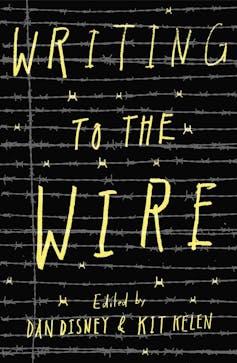 I must acknowledge a possible conflict of interest here by noting that I have a poem in this anthology, but Writing to the Wire (UWA Publishing, 2019) is an extraordinarily powerful collection of poems by and about maritime asylum seekers. The anthology includes poems by senior and emerging Australian poets, and work by those who “would like to be Australians”, as the book’s blurb puts it. As the editors write in their introduction, Writing to the Wire is a little like “bashing your head against a brick wall [but also] very much a book of hope”.
Three years later, the editors and the contributors to this anthology — not to mention those indefinitely detained by the Australian government — are still hoping.
Recommended for: the whole parliament.
-David McCooey, Writing and Literature Professor
Hearing Maud: A Journey for a Voice
I must acknowledge a possible conflict of interest here by noting that I have a poem in this anthology, but Writing to the Wire (UWA Publishing, 2019) is an extraordinarily powerful collection of poems by and about maritime asylum seekers. The anthology includes poems by senior and emerging Australian poets, and work by those who “would like to be Australians”, as the book’s blurb puts it. As the editors write in their introduction, Writing to the Wire is a little like “bashing your head against a brick wall [but also] very much a book of hope”.
Three years later, the editors and the contributors to this anthology — not to mention those indefinitely detained by the Australian government — are still hoping.
Recommended for: the whole parliament.
-David McCooey, Writing and Literature Professor
Hearing Maud: A Journey for a Voice
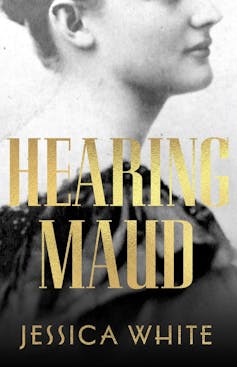 Hearing Maud (UWA Publishing, 2019) by Jessica White is a beautifully told story about two people living nearly one hundred years apart, and their experience of deafness. The first is the author herself, Jessica White, who suffered significant and permanent hearing loss following an illness at the age of four. The other is Maud Praed, the daughter of the Australian writer Rosa Praed (1851-1935). Jessica looks into the life of this forgotten daughter of a largely forgotten writer and finds haunting parallels with her own situation. The story is an insider’s account of hearing impairment but, more than this, reminds everyone — not least legislators and policy makers — that what we call disability has an interior life.
Recommended for: Minister for Families and Social Services Anne Ruston and the Minister for the National Disability Insurance Scheme Stuart Robert
–Tony Hughes-D'aeth, English and Cultural Studies Professor
Dark Emu
Hearing Maud (UWA Publishing, 2019) by Jessica White is a beautifully told story about two people living nearly one hundred years apart, and their experience of deafness. The first is the author herself, Jessica White, who suffered significant and permanent hearing loss following an illness at the age of four. The other is Maud Praed, the daughter of the Australian writer Rosa Praed (1851-1935). Jessica looks into the life of this forgotten daughter of a largely forgotten writer and finds haunting parallels with her own situation. The story is an insider’s account of hearing impairment but, more than this, reminds everyone — not least legislators and policy makers — that what we call disability has an interior life.
Recommended for: Minister for Families and Social Services Anne Ruston and the Minister for the National Disability Insurance Scheme Stuart Robert
–Tony Hughes-D'aeth, English and Cultural Studies Professor
Dark Emu
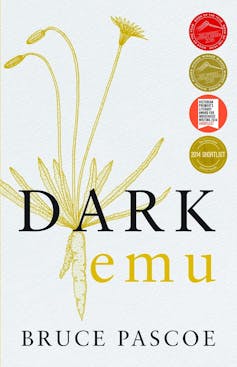 In Dark Emu (Magabala Books, 2014), Bruce Pascoe amasses a cogent case that Indigenous Australians farmed their land, lived in villages, built houses, harvested cereals and built complex aquaculture systems – and how settler Australians wilfully misunderstood this.
Occupying the western Sydney fringe, Ed Husic’s electorate of Chifley has the rare distinction of a border that follows an important waterway (South Creek) and contains significant colonial-Darug contact sites. Western Sydney is home today to Australia’s largest Aboriginal population; the Aboriginal Land Council is the largest non-government land holder; and some 46 Indigenous organisations are working to sustain their community.
Recommended for: Ed Husic, MP for Chifley
–Heidi Norman, Social and Political Sciences Professor
hope for whole: poets speak up to Adani
In Dark Emu (Magabala Books, 2014), Bruce Pascoe amasses a cogent case that Indigenous Australians farmed their land, lived in villages, built houses, harvested cereals and built complex aquaculture systems – and how settler Australians wilfully misunderstood this.
Occupying the western Sydney fringe, Ed Husic’s electorate of Chifley has the rare distinction of a border that follows an important waterway (South Creek) and contains significant colonial-Darug contact sites. Western Sydney is home today to Australia’s largest Aboriginal population; the Aboriginal Land Council is the largest non-government land holder; and some 46 Indigenous organisations are working to sustain their community.
Recommended for: Ed Husic, MP for Chifley
–Heidi Norman, Social and Political Sciences Professor
hope for whole: poets speak up to Adani
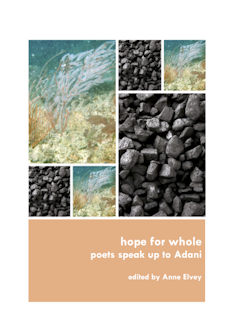 It’s hard to go past The Swan Book (Alexis Wright) for its testimony regarding the climate crisis and the NT intervention, and Jess Hill’s new book See What You Made Me Do on the endemic of domestic abuse. But I’m settling on hope for whole: poets speak up to Adani (Plumwood Mountain, 2018) featuring many of Australia’s finest poets. Anne Elvey and Plumwood Journal: An Australian Journal of Ecopoetry and Ecopoetics hosted Poets Speak up to Adani Day of Action in 2017, an event during which poets poemed protests at Adani for 12 hours. The resulting anthology is even more pertinent post-Federal election, and the recent diplomacy fail in Tuvalu.
Recommended for: all parliamentarians who support the mine or seem soft on climate action.
–Meera Atkinson, Creative Writing Lecturer
No Friend But the Mountains: Writing from Manus Prison
It’s hard to go past The Swan Book (Alexis Wright) for its testimony regarding the climate crisis and the NT intervention, and Jess Hill’s new book See What You Made Me Do on the endemic of domestic abuse. But I’m settling on hope for whole: poets speak up to Adani (Plumwood Mountain, 2018) featuring many of Australia’s finest poets. Anne Elvey and Plumwood Journal: An Australian Journal of Ecopoetry and Ecopoetics hosted Poets Speak up to Adani Day of Action in 2017, an event during which poets poemed protests at Adani for 12 hours. The resulting anthology is even more pertinent post-Federal election, and the recent diplomacy fail in Tuvalu.
Recommended for: all parliamentarians who support the mine or seem soft on climate action.
–Meera Atkinson, Creative Writing Lecturer
No Friend But the Mountains: Writing from Manus Prison
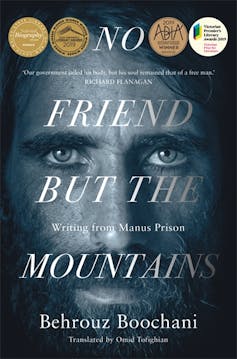 Reading expands our capacity for empathy. It forces us to exercise our ethical imagination by putting ourselves into somebody else’s situation; particularly somebody who may be unlike us in the way they think, speak, or feel, or in the situations that they face. No Friend But the Mountains (Pan Macmillan Australia, 2018), Behrouz Boochani’s work of prose poetry, sent out in text messages from Manus Island, bears witness to death, torture and traumatic deprivation. It asks its reader not to treat the fresh hell it narrates as an anomaly but to understand “Manus Prison” as part of a system of oppression and injustice that is far larger, and ongoing. But to learn from Boochani’s text, the reader must give themselves to the work, and read with generosity.
These values may be of assistance to all members of the parliamentary book club.
–Camilla Nelson, Media Professor
Reading expands our capacity for empathy. It forces us to exercise our ethical imagination by putting ourselves into somebody else’s situation; particularly somebody who may be unlike us in the way they think, speak, or feel, or in the situations that they face. No Friend But the Mountains (Pan Macmillan Australia, 2018), Behrouz Boochani’s work of prose poetry, sent out in text messages from Manus Island, bears witness to death, torture and traumatic deprivation. It asks its reader not to treat the fresh hell it narrates as an anomaly but to understand “Manus Prison” as part of a system of oppression and injustice that is far larger, and ongoing. But to learn from Boochani’s text, the reader must give themselves to the work, and read with generosity.
These values may be of assistance to all members of the parliamentary book club.
–Camilla Nelson, Media Professor
Authors: Jane Howard, Deputy Section Editor: Arts + Culture




